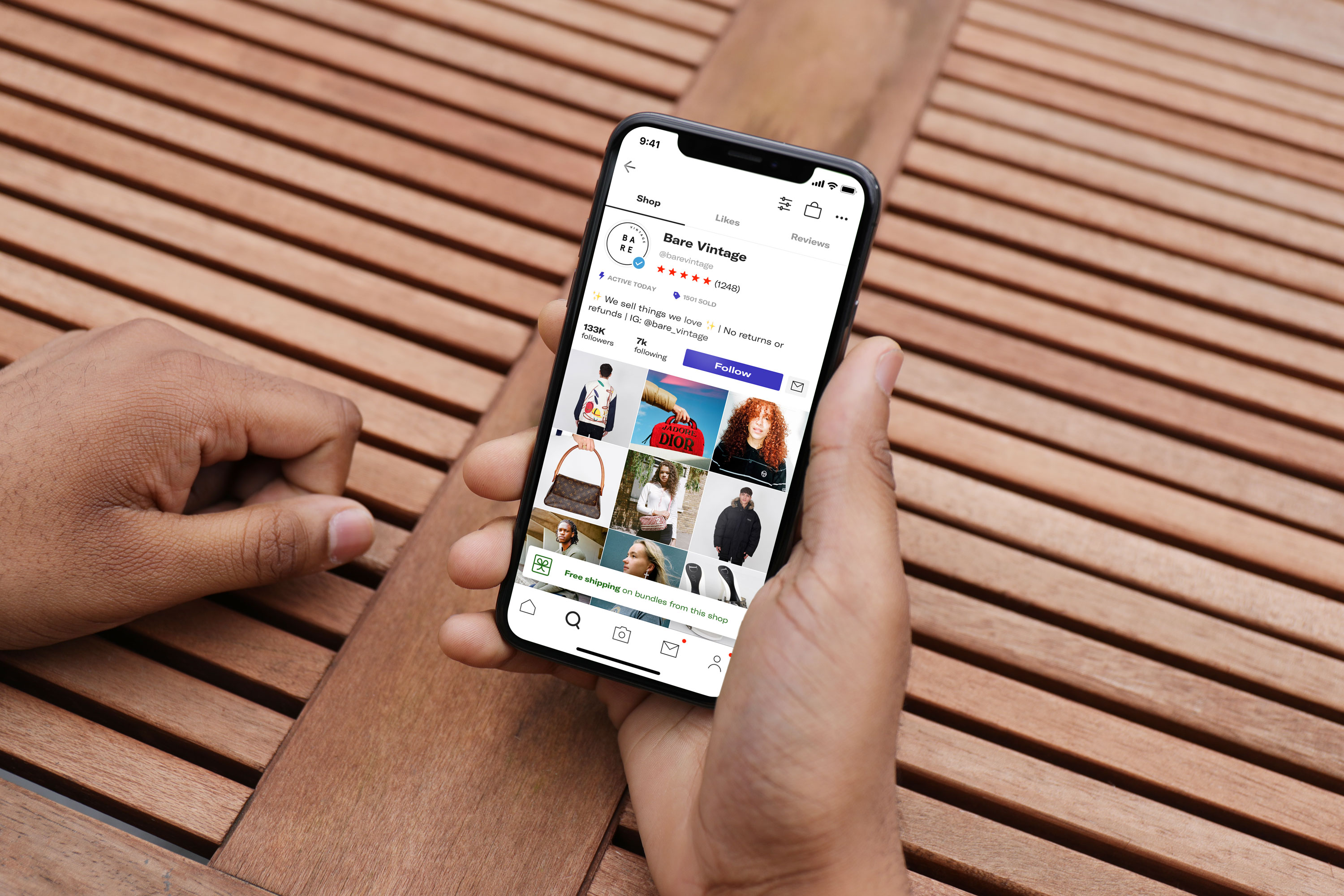
Chris Donnelly, founder & Managing Director at luxury digital agency, Verb Brands, considers the rise of fashion e-commerce platform Depop and what luxury brands can stand to learn about the reuse generation.
This article originally appeared in Luxury Briefing issue 216.
The word ‘luxury,’ like much of the English language, is derived from Latin. ‘Luxus’ is the root of ‘excess’. As in, more than necessary, superfluous, extra. Some of us inherently desire more — cars, watches, clothing — regardless of whether or not we can afford them. These articles, and clothing, in particular, are an expression of identity, of aspiration and who we perceive ourselves to be. And why not? If you wake up feeling extra, you need an outfit to match.
For Gen Z, these purchases are fed by ideas of fluidity: there are no finites or absolutes. Power, influence, authority, identity, and everything in-between are negotiable. As is the concept of ownership. If you can’t afford those Moschino pants, wear them once and sell them — let someone else enjoy them as much as you did. Take the picture, get the likes, pass it on. This notion of a circular economy is growing more prevalent, driven massively by Depop, the London-based social shopping app that recently announced a $62 million funding round to power its US expansion.
Suffice to say, Depop represents more than a faddish app: luxury brands looking to tap into the next generation of consumers — just shy of a quarter of the global population, with an estimated $143 billion spending power — should heed its rise and rise.

For a start, the next generation of young people want an experience the fashion industry is struggling to provide. Being stuck in Vogue when your audience is on Instagram seems increasingly outmoded to a digitally-native, mobile-first generation.
The lines between social exploring and social commerce are blurring. Instagram, Pinterest, and Facebook each have some sort of shopping interface. Instagram’s shopping in particular, though very early days, looks promising, with Deutsche predicting it could be worth $10 billion in annual revenue by 2021. But presently, none has a scratch on Depop. The app is the Instagram for clothes shopping that Instagram wishes it was.
Unlike most of its rivals, Depop has been quick to respond to where consumer behaviour is shifting to, becoming a natural home for HENRYs (High Earners Not Yet Rich) in the process. It is littered with famous influencers — early adopters who turn to the app to decide what happens next. New styles can appear on the app months before they go viral on Instagram. Depop represents the periphery, where ideas grow before hitting the mainstream.
But it’s the app’s embodiment of resale that sets it apart and raises difficult questions for luxury brands. The luxury second-hand market has boomed in the last decade, driven by limited-edition sneakers and rare streetwear collaborations with fashion houses. Staggeringly, the Ellen Macarthur Foundation reports that the second-hand market will reach $51 billion in five years, eclipsing fast fashion within a decade.
It’s not just that these kids know quality when they see it, though that is true. These are conscious consumers — the Extinction Rebellion generation — who want brands to do better: for the environment, for their health, and for the common good. They don’t want fast fashion because fast fashion is bad; the second-biggest polluter of freshwater resources on the planet, producing more greenhouse gas emissions than all international flights and maritime shipping combined.
This should be good news for luxury brands, which can pride themselves on knowing that their quality items will have many lives. The idea that it’s not what you wear, but how you wear it, has never been more true.
But with the rise of Depop, notions of luxury and exclusivity are becoming democratised. Consider the way Burberry burnt clothes to protect its brand last year. This idea that products should only end up in the hands of those who can afford full-price; that if there is excess stock, it should be burnt to maintain a patina of being exclusive and always in-demand, will die with the twenty-tens.
When the likelihood is that luxury items will be resold, possibly while still in season, luxury brands lose control of their brand and are going to have to rethink their approach to exclusivity. And, naturally, loyalty. By playing on the terms of the Depop generation today, it will help to stay ahead of consumer expectation and develop loyalty tomorrow.
Language evolves. Luxury may be rooted in excess but is taking on a new meaning. Brands that aren’t tapping into notions of fluidity, of radical transparency and environmental care, the shift towards sustainability, and a need to reduce waste in the luxury sector, stand to look, well… out of fashion.
